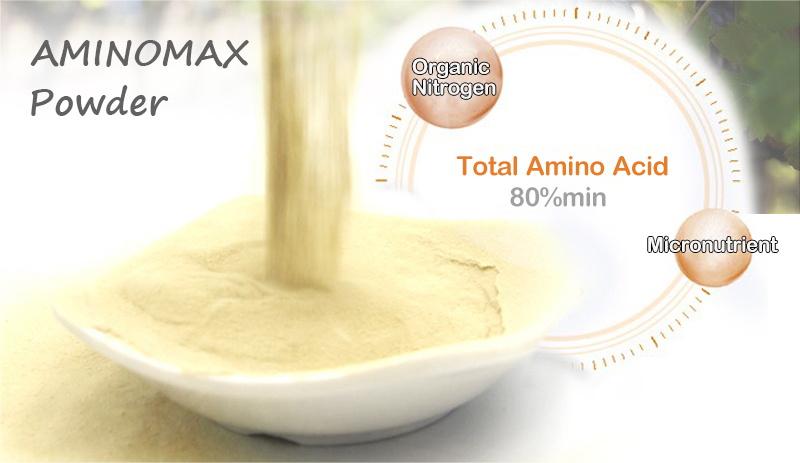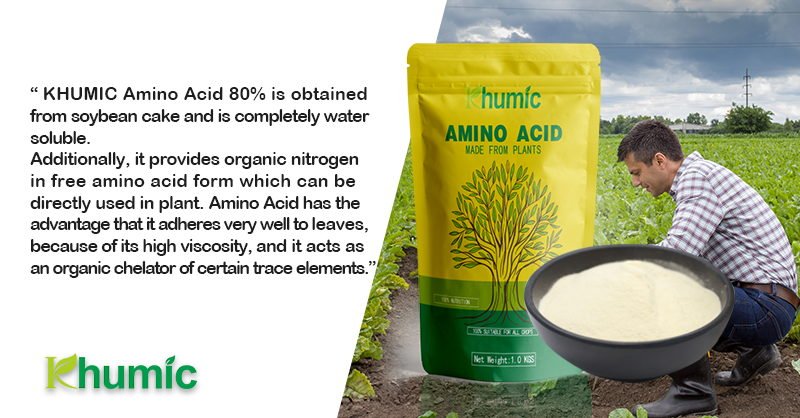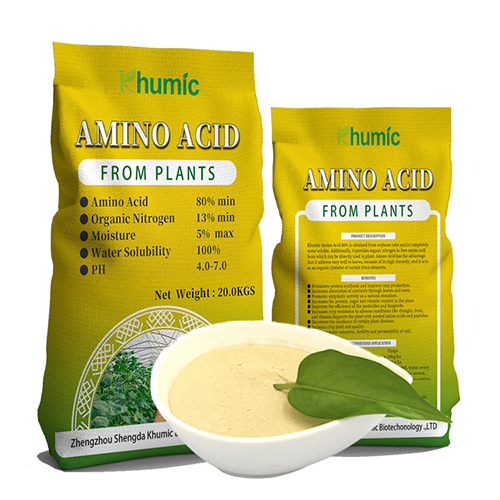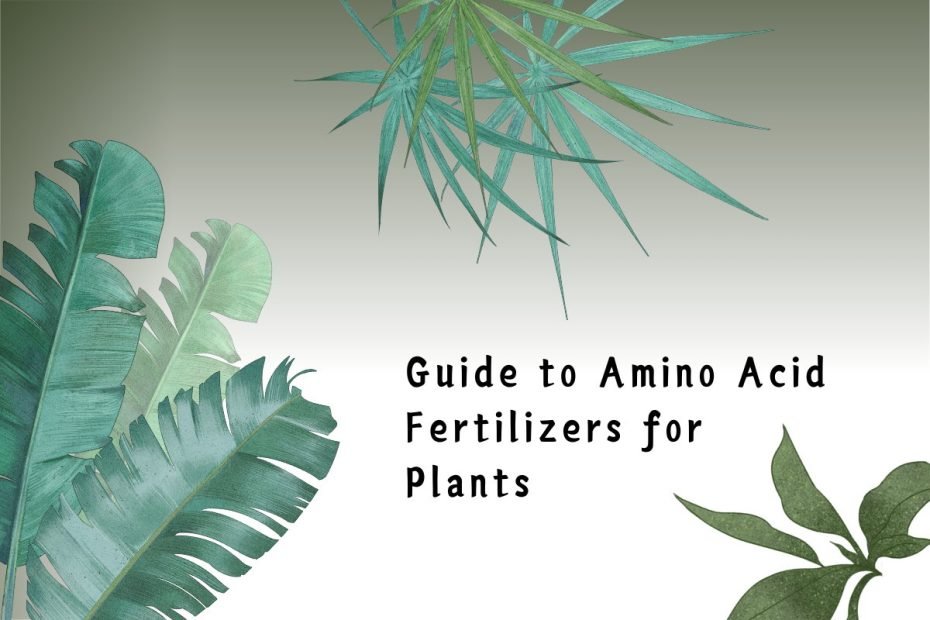Introduction
Do you want your plants to have the best chance of thriving? Amino acid fertilizers for plants are your best choice! This organic, nutrient-rich fertilizer is growing in popularity for its ability to enhance plant health, improve nutrient absorption, and promote overall growth. Let’s delve into the world of amino acid fertilizers and discover how they can transform your gardening health.
Table of Contents
What are Amino Acids and Amino Acid Fertilizers?
Amino acids are the building blocks of protein and play vital roles in growth, development, reproduction, and response to stress. Plants can produce many amino acids through their metabolism, however, external stressors such as extreme temperatures, drought, and pests can adversely affect this process. In this case, the plants’ amino acid production may be insufficient, or their amino acid requirements may be increased. It must therefore be obtained from external sources, usually through supplements.
Amino acid fertilizers are plant supplements derived from hydrolyzed proteins such as soy, alfalfa, or fish. These fertilizers contain high concentrations of amino acids, and by providing plants with a ready source of amino acids, this fertilizer enhances nutrient uptake, promotes root development, and increases resistance to environmental stresses. These powerful molecules are involved in protein synthesis, enzyme production, and nutrient absorption, and are essential for strong plant growth.
Benefits of Amino Acid Fertilizers for Plants
Apply amino acid fertilizers during periods of active plant growth (such as during the growing season or flowering). This ensures that plants can use nutrients efficiently and benefit from the growth-boosting effects of amino acids.
1. Improve nutrient absorption
Applying an amino acid fertilizer (such as, KHUMIC’s extracted from soybeans AminoMax), chelates essential minerals in the soil and makes them more soluble, allowing the molecules to reach the appropriate parts of the cell faster and easier. Helps plants absorb essential nutrients more efficiently, ensuring plants receive the vital elements they need to grow.
2. Promote growth and increase yields
Amino acid fertilizers provide the amino acids and peptides needed by plants, and stimulate plant metabolism and protein synthesis, thereby promoting crop flowering and fruit enlargement, increasing yield, promoting sugar conversion, and increasing fruit sweetness.
3. Resilience
Amino acid fertilizers act as a shield. Accelerates tissue repair, strengthens plant cell walls, and stimulates the plant’s natural immune mechanism to help plants cope with environmental stresses such as drought, high temperature, or disease.
4. Environmental friendly
In a world where sustainability is paramount, amino acid fertilizers provide a green solution for plant nutrition. These organic compounds are biodegradable and environmentally friendly, making them a safe choice for plants and the planet.

Advantages of amino acid fertilizers for plants Supplementary reading:
- 9 advantages of amino acid fertilizers: https://www.echemi.com/cms/132573.html
Types of Amino Acid Fertilizers
- Liquid amino acid fertilizer
Liquid amino acid fertilizers are convenient to use and easy to apply, quickly replenishing nutrients for plants. These formulas are ideal for foliar spraying or soil drenching, ensuring rapid uptake and utilization by plants.
- Powdered amino acid fertilizer
Powdered amino acid fertilizers are versatile and cost-effective and are easy to store and transport. KHUMIC’s AminoMax formula can be mixed with water to create a liquid solution or mixed into the soil to gradually release nutrients.

- Amino acid-chelated fertilizer
Amino acid-chelated fertilizers combine the benefits of amino acids and chelated minerals to provide a powerful nutrient blend for plant growth. These formulas ensure optimal nutrient absorption and utilization, promoting healthy plant development.
Application of Amino Acid Fertilizers
- soil application: To ensure long-term nutrient supply, it is recommended to apply amino acid fertilizers to the soil. It can be mixed into the soil at planting or applied around existing plants to provide a steady supply of nutrients.
- Foliar spray: Foliar spraying is a quick and effective method of delivering nutrients directly to plant leaves. Amino acid fertilizers can be diluted with water and sprayed onto leaves so that plants can quickly absorb and utilize them.
- seed treatment: To get the seeds to germinate first, treat them with an amino acid fertilizer before planting. This helps promote germination, root development, and early growth, setting the stage for healthy plant growth from the start.
Conclusion
Incorporating amino acid fertilizers into your plant care routine can completely transform your plants’ growth, leaving them lush and vibrant.
AminoMax is a plant resource extracted from soybean cake. It is chlorine-free, 100% soluble, rich in 18 kinds of amino acids, provides organic nitrogen in the form of free amino acids, and can be used directly on plants. At the same time, the crude protein content of grain crops and the soluble sugar and protein content of green leafy vegetables are increased to improve quality.


FAQs
Are amino acid fertilizers suitable for all plants?
Yes, amino acid fertilizers are beneficial to a variety of plants, including crops, ornamentals, fruits, and vegetables. Their versatility and organic composition make them suitable for a variety of plant species and growing conditions.
How long does it take to see the effect of using amino acid fertilizer?
The time frame for seeing results after using amino acid fertilizers can vary depending on factors such as plant type, growth stage, and environmental conditions. Generally speaking, within a few weeks to a month of continued use, you may begin to notice improvements in plant health, growth, and yields.
Can amino acid fertilizer be used in conjunction with other fertilizers?
Yes, amino acid fertilizers can be combined with other fertilizers to provide a complete nutritional solution for your plants. Ensure compatibility between different fertilizers and follow proper mixing guidelines to avoid nutrient interactions and maximize benefits for your plants.
Are amino acid fertilizers safe for organic farming practices?
Amino acid fertilizers are considered safe for organic farming practices due to their organic content and environmentally friendly properties. These fertilizers are biodegradable, non-toxic, and contain no synthetic chemicals, making them a suitable choice for organic growers looking for sustainable plant nutrition solutions.
What is the shelf life of amino acid fertilizer? How to save?
The shelf life of amino acid fertilizers will vary depending on formulation and storage conditions. Generally speaking, it is recommended to store amino acid fertilizers in a cool, dry place away from direct sunlight and moisture to maintain their effectiveness. Please check the manufacturer’s guidelines for specific storage instructions and shelf life information.
